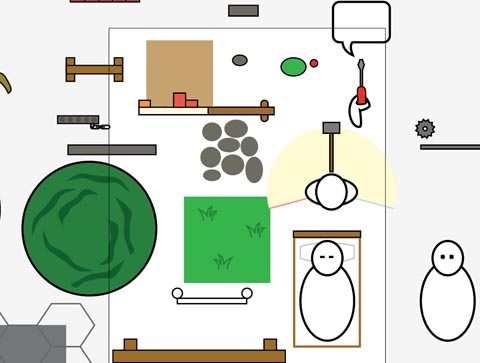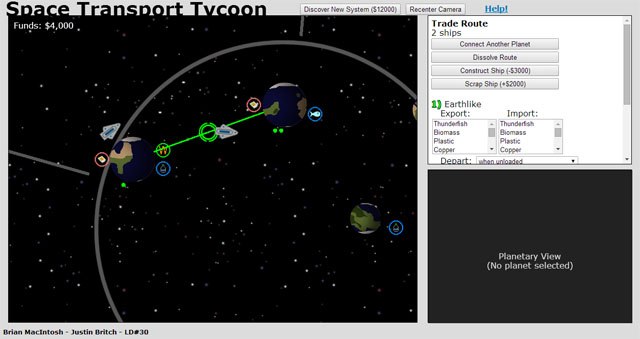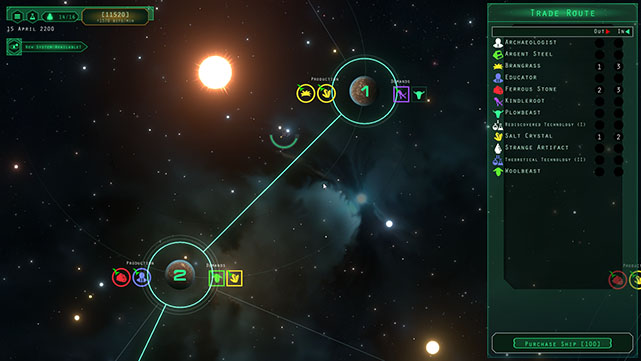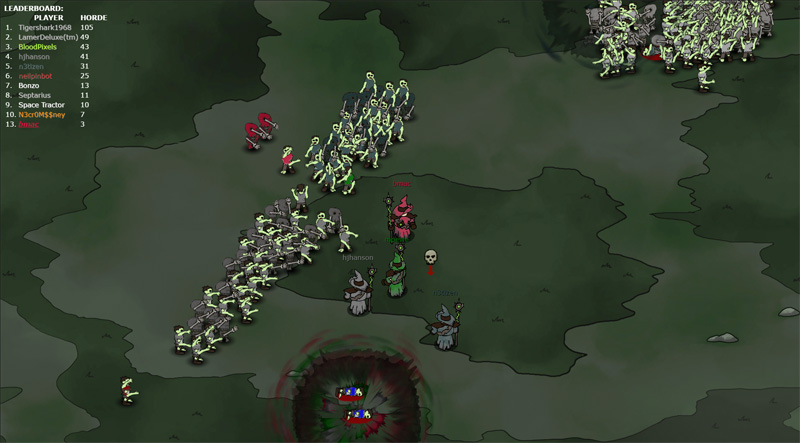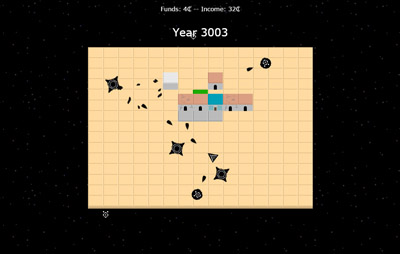Ludum Dare 46 - The Wrecker
April 28th, 2020 (edited November 3rd, 2022)It's been a few Ludum Dares since I participated, but last weekend I jumped in for the Ludum Dare 46 with audio designer Christian Camargo. This Dare saw a big spike in participation this time around, probably due to the stay-at-home orders in many places. The theme was "Keep it Alive". We worked in Unity with Wwise.
After starting, as always, by spamming a heap of ideas out on (virtual) paper, I started trying to mash two or more of the ideas together into a hybrid idea. "The Wrecker" was born from the union of a game about a factory poisoning a town, and my recent playthrough of Red Faction: Guerrilla and love for its granular destruction systems. We also grabbed two other elements from the doc we wanted to include: a time limit to push the player forward, and the idea that the player is also dying and needs to prioritize their own health against that of the town. That more than was enough to get started!
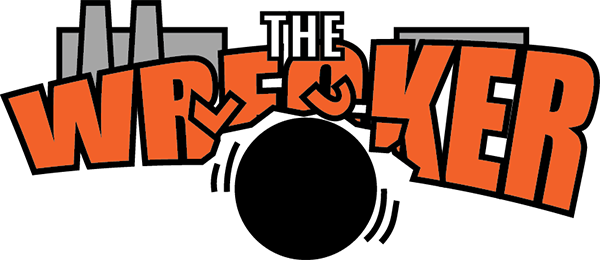
What We Learned
Wwise
The decision to use Wwise for our audio had some pros and cons. Despite being relatively unfamiliar with it as the programmer of the team, I was able to hook in pretty easily by making a single call to posting a string-named event when audio cues should be played or stopped. Christian was able to do a lot of customization in Wwise, such as randomizing the sounds played and their parameters, that I didn't need to implement.
On the down side, however, Wwise did not play nicely with Unity's Collab source control, which only synchronizes the Unity project data and did not understand that there was also a Wwise project to synchronize. This effectively siloed off the audio work until we manually transfered the project, and I didn't hear most of the audio until a few hours before the deadline. Theoretically, Wwise is capable of building audio banks into the project that could be synced, but in the jam crunch we never got that working.
I also discovered late on Saturday (making an early test build to catch any build problems - I definitely recommend it) that WWise is not compatible with Unity WebGL builds, which are the optimal way to get Ludum Dare raters into the game quickly. Fortunately this does not appear to be affecting our ability to get ratings.
Physics Gameplay
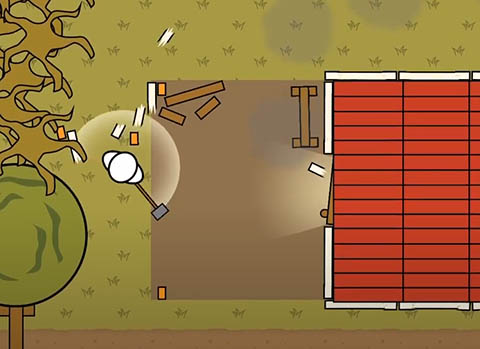
I chose to implement the game's progression through three different weapons, each capable of breaking more objects than the last, and only the final weapon was able to break through the doors into the factory. It's a pretty time-honored design. However, I opted to implement the destruction with Unity's breakable physics joint system, in which each joint has a specified Break Force.
This was a quick way to get everything up and running, but the result was a huge number of breakable joints scattered throughout the game's prefabs, many of which needed to be carefully balanced so they were only breakable by the appropriate weapon. Any change to physics parameters, such as the player's movement speed or weapon swing speed, could throw off everything. If I did this over, I would probably try to implement explicit, hard limitations on which objects can be broken by which weapons rather than relying on the implicit interactions of the physics engine to gate crit-path gameplay.
Vector Graphics
I used Adobe Illustrator to produce all the art for the game. This was very efficient, and I was able to turn out assets incredibly quickly and get back to coding. I made all the assets on two artboards (Game and UI), which made it quick and easy to ensure everything was at a consistent scale and stroke width. I used a simple visual language that I think contributes significantly to the game's clean look - collidable objects have a black stroke and background objects have none. Additionally, control prompts are always a key in a rounded white rectangle.
If you haven't check out the game yet, you can download it for free from this link, or watch a video right over here! If you are a Ludum Dare participant, you can rate the game at its Ludum Dare page.











